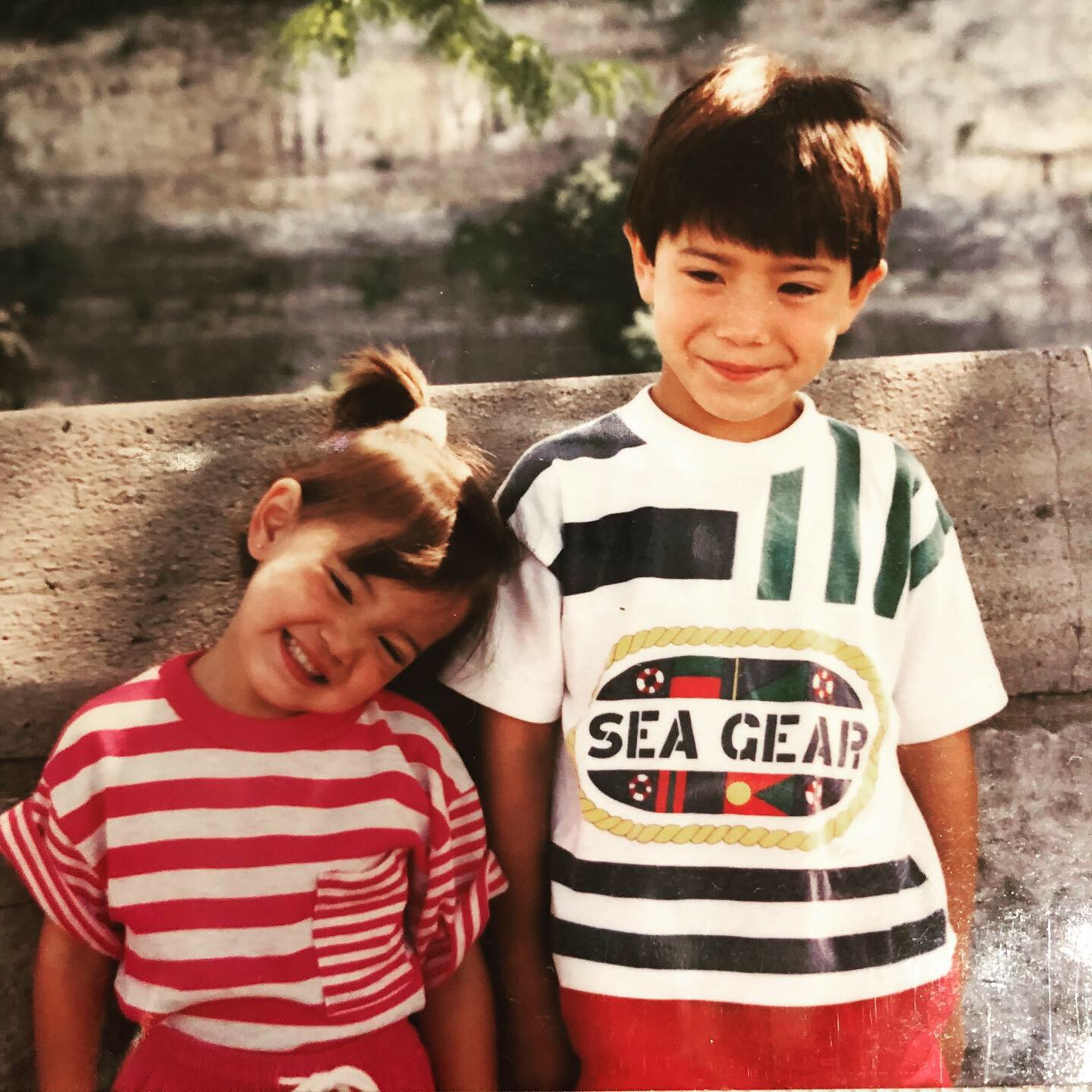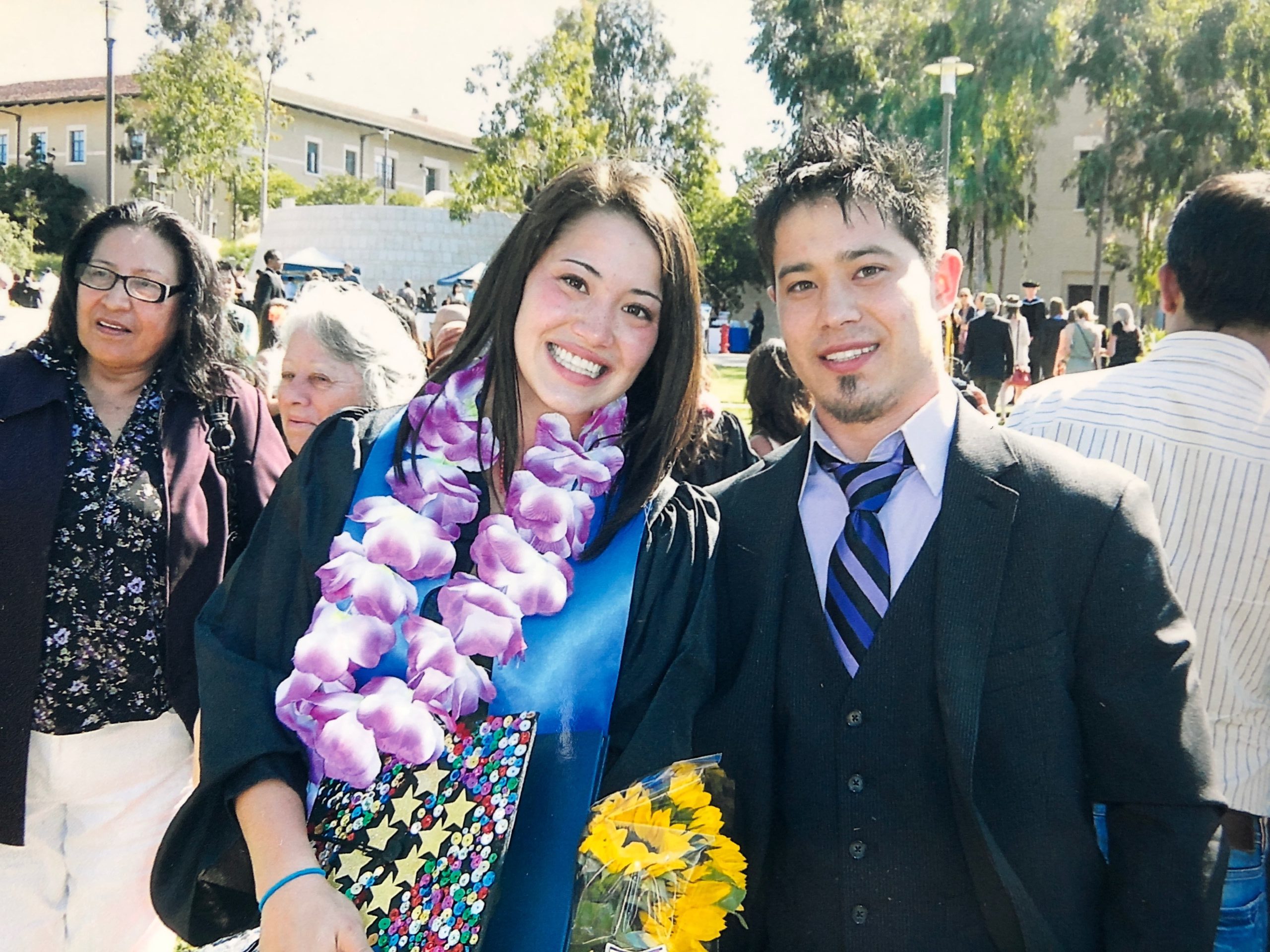(Photo above courtesy of Jenny Cook)
Buddhability: Thank you, Jenny, for talking to us today and opening up about your experience. What made you want to try chanting Nam-myoho-renge-kyo?
Jenny Cook: Thank you for the opportunity to share. When my mom left Okinawa, Japan, to marry my dad, an American Navy seaman, her sister told her to try chanting Nam-myoho-renge-kyo whenever she was struggling.
Life as a Japanese immigrant in middle America was tough—she didn’t understand English, my dad developed a drinking problem, and the two struggled with money. But keeping her sister’s words in her heart, she chanted every day and read encouragement from Daisaku Ikeda, a Buddhist teacher.
Growing up, I felt embarrassed about our Buddhist practice and wanted to be normal like my friends. It didn’t help that I was biracial and my mom’s English wasn’t proficient so, my brother and I learned broken English from her. Not making the effort to learn the cultural component, it was assumed I had a learning impairment and was placed into specialized classes.

(Left to right) Jenny with her brother Shane.
It didn’t stop there, it’s like a classic Asian-American story where you bring your lunch to school and because it’s different, your classmates say, “that’s disgusting” and don’t want to eat lunch with you.
From elementary to high school different racial slurs would come my way. When I decided to run for student council, there were pictures of me everywhere and students would draw slanted eyes and write, “Can she be the secretariat if she can’t even see?” I just wanted to hide. I couldn’t even smile being bullied in this way for years.
At the same time, I saw how happy Buddhist practice made my mom. It wasn’t until I was in a life-threatening car accident that I decided to give Buddhism a try.
Wow, what happened?
Jenny: It was the day after Thanksgiving in 2006, and I had just turned 18. I was in the car with my dad and brother, when an SUV cut us off. My body flew into the back of the headrest—crushing my face and breaking my mandible—before I slammed into the side door.
I was rushed to the hospital, and although my heart had stopped for two minutes, I survived. Laying on the gurney, I looked up at a round, mirrored light above me and saw the reality of my face. It was exactly how I had felt on the inside for many years—powerless, cold and lifeless. Ironically it was at that moment that I smiled genuinely for the first time. I just was so grateful to be alive.
What changed?
Jenny: I came out of the haze, immobile and unable to speak, with no movement in my face. While I was laying there in bed, my mom chanted beside me. For the first time, I heard Nam-myoho-renge-kyo so clearly and powerfully.
Looking back, it’s because of the accident that I started to really appreciate my life and brought my family closer.
I knew my parents weren’t blind to the suffering I was going through at school. As I was laying on the hospital bed, I realized that I just wanted them to know that no matter what, I will never give up on myself.
The simple fact that if it weren’t for them, I wouldn’t be alive motivated me to fight for it. I wanted to feel that sense of security that I saw in my mom whenever she chanted and thought, This is how I can show them that I will be OK.
Despite the immense pain, I pushed myself to chant, syllable by syllable. After a little over a month, I was finally able to say “Nam-myoho-renge-kyo” to my mom. She was overjoyed.
Also, my dad, who had fallen into a depression from not being able to prevent the car accident and the suffering that followed, started practicing Buddhism and overcame his own vices. Looking back, it’s because of the accident that I started to really appreciate my life and brought my family closer.
So powerful. How did life change from there?
Jenny: With my Buddhist practice I recovered after only three-and-a-half months.
When I returned to school, there was one hurdle after another. I was so behind on schoolwork that I wasn’t sure whether I would graduate. Some classmates made fun of me for not having teeth; they were shattered in the accident. On top of that, my application to my dream school, was waitlisted.
I went back to encouragement from my Buddhist teacher Daisaku Ikeda who writes:
Real life … is filled with an unending series of problems, including such things as financial troubles, sickness and family disharmony. At such times, your circumstances may seem unfortunate, but if you keep chanting Nam-myoho-renge-kyo throughout, you will definitely transform all that is negative into something positive in accord with the Buddhist principle of “changing poison into medicine.” You can ride out every difficulty, turning it into an opportunity for growth.
The Vow of the Ikeda Kayo-kai, p. 5
My mom and I would wake up even before the sun came up to chant a lot before school. With waking up to my Buddhability every day, I no longer cared if people made fun of me. I still smiled, because I was just so happy to be alive. I overcame each hurdle, graduated on time with the support of my teachers, and I was accepted to my dream school!

(Left to right) Jenny with her brother Shane at her University graduation from her dream school, Soka University of America.
Congratulations! With major wins under your belt, what are you currently pursuing?
Jenny: Currently, I am a learning behavior specialist who works with children with backgrounds of trauma, addiction, and violence. I support them in processing their own experiences in life and to use these experiences to feel empowered, while opening doors to further value their education.
When we went into quarantine and the students couldn’t physically come to school, it was difficult to build solid relationships of trust and care.
I started chanting for the safety of my students and trying to come up with new and creative ways to continue engaging with them. The most important thing I could do was to continue reaching out, one to one, to see how each of them was doing.
Before the shutdown, I had a student who stopped attending school. I kept chanting and writing him letters, deciding to be a consistent person in his life, He emailed me recently and continues to check in, letting me know that he hasn’t given up.
These students teach me the power of our lives, and the importance of persevering in our efforts. Having lived in different parts of America, I see the reality and inequity of education firsthand. And as someone who was fortunate enough to receive wonderful opportunities, I feel it’s my fortune to be able to work for my community.
My whole life I was treated differently for being seen as “different” but there was always a part of me that felt pride in who I was. Now with my students my first priority is to appreciate whatever behavior they display, and in turn, embrace them with honesty and care . I believe it’s my greatest opportunity to learn with them, and to provide an education they see as meaningful. I feel there is no separation between my Buddhability and my role as an educator.
